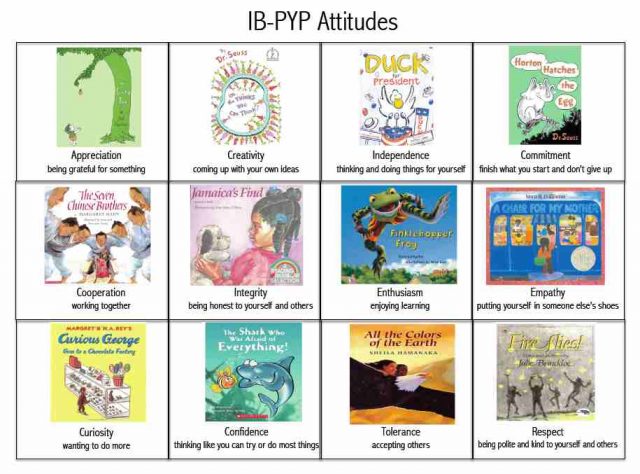12 PYP Attitudes Developed in International Baccalaureate

In the educational landscape, the International Baccalaureate (IB) Primary Years Programme (PYP) stands out as a leading option for holistic learning for children aged 3–12, blending academic rigour with emotional and social development. This programme emphasised the development of skills and PYP attitudes that go beyond traditional subjects.
Each attitude plays a vital role in shaping students into enthusiastic, inquisitive, and socially responsible individuals. If you are interested in enrolling your children in this programme, explore the details in this article.
Discover how BINUS SCHOOL Simprug brings these attitudes to life in daily learning experiences. Schedule a visit today and see our Primary Years Programme in action.
The Aims of IB PYP for Children
First things first, let’s talk about the Primary Years Programme (PYP) in the International Baccalaureate (IB). PYP is a fundamental component of the IB educational framework.
Geared towards children aged 3 to 12, the PYP is designed to provide a transdisciplinary and inquiry-based learning experience. The program focuses on developing essential skills and attitudes in students at an early age.
Therefore, the programme aims to foster holistic development, instil a love for learning, and cultivate globally-minded individuals. As an IB World School, BINUS SCHOOL Simprug delivers the PYP framework with a strong emphasis on student agency, inquiry-led learning, and international-mindedness.
Also Read: International Baccalaureate Programme with Its Unquestionable Qualities
What Are the 12 PYP Attitudes in the IB Programme?
In the International Baccalaureate’s Primary Years Programme (PYP), the development of attitudes is a crucial aspect aimed at shaping well-rounded, open-minded, and socially conscious individuals. The attitudes include:
-
Appreciation
The attitude of appreciation encourages students to recognise and value the wonder and beauty of the world and its diverse inhabitants.
It emphasises cultivating gratitude and acknowledging the richness that different cultures, perspectives, and experiences bring to our lives.
-
Commitment
Commitment in the PYP attitudes refers to students being dedicated to their learning journey. This involves persevering through challenges, demonstrating self-discipline, and taking responsibility for their academic and personal development.
-
Confidence
Confidence is about instilling a belief in students about their abilities as learners. It encourages them to take risks, apply their knowledge, and make decisions with courage and assurance.
-
Cooperation
The attitude of cooperation emphasises the importance of working collaboratively. Students learn to cooperate, collaborate, and take on leadership or follower roles as required by different situations.
-
Creativity
Creativity is nurtured by encouraging students to think imaginatively and approach problems and challenges with innovative solutions. It involves fostering a mindset that values thinking outside the box and exploring unconventional ideas.
-
Curiosity
Curiosity is a fundamental attitude that drives a passion for learning. Students are encouraged to be inquisitive about the nature of learning, the world, and the various cultures and people within it.
-
Empathy
The attitude of empathy involves students putting themselves in others’ shoes to understand different perspectives. This fosters open-mindedness and reflection on the emotions and reasoning of others.
-
Enthusiasm
Enthusiasm in the PYP attitudes encourages students to approach learning with joy and eagerness. It involves willingly putting effort into the learning process and finding enjoyment in the acquisition of knowledge.
-
Independence
Next, independence is about fostering the ability to think and act independently. Students are encouraged to make judgments based on reasoned arguments and defend their decisions.
-
Integrity
At its core, integrity involves being honest and demonstrating a considered sense of fairness. It encourages students to uphold ethical principles and make choices aligned with a strong moral compass.
-
Respect
The attitude of respect goes beyond acknowledging differences. It involves valuing oneself, others, and the world around us. It encourages a mindset of inclusivity, humility, and acknowledgment of the worth of every individual.
-
Tolerance
Last but not least is the tolerance. Tolerance is about being sensitive to differences and diversity in the world. It encourages students to respond to the needs of others with understanding and acceptance.
By internalising these PYP attitudes, students are not only prepared for academic success but are also equipped to contribute positively to a global society. Curious about how we nurture these attitudes through daily school life? Learn more about our PYP curriculum at BINUS SCHOOL Simprug.
Also Read: MYP Inquiry Questions: Types and Examples
How BINUSIAN Values Reinforce PYP Attitudes at BINUS SCHOOL Simprug
At BINUS SCHOOL Simprug, the previous 12 PYP attitudes are seamlessly integrated with the BINUSIAN SPIRIT (Striving for Excellence, Perseverance, Integrity, Respect, Innovation, and Teamwork). Here are the details:
-
Striving for Excellence (S)
BINUSIAN’s values emphasise the continuous pursuit of excellence in all aspects of work and learning. Students are encouraged to go beyond their limits, aiming for high-quality results
This value is translated into active participation in the school’s vision and mission. Students are motivated to act as if the campus is their own, fostering a culture of excellence and continuous improvement.
-
Perseverance (P)
Perseverance is central to the BINUSIAN SPIRIT. It entails staying calm, focused, and resilient in the face of challenges, never giving up, and swiftly recovering from setbacks.
As for the application in daily life, BINUS SCHOOL Simprug’s students are instilled with perseverance, taught to tackle responsibilities with determination, never retreat in the face of obstacles, and exceed expectations in their endeavours.
-
Integrity (I)
Upholding honesty, transparency, sincerity, and courage in doing what is right characterises the value of Integrity in the BINUSIAN values.
This value is manifested in consistent behaviour, whether under supervision or not. Students are encouraged to be truthful, transparent, and courageous in their actions, fostering a culture of trust.
-
Respect (R)
Aligning with the PYP attitudes, the BINUSIAN SPIRIT places high importance on caring for others, appreciating differences, and valuing contributions from every individual.
Respect is ingrained in the school’s culture, promoting a caring and inclusive environment. Here in our school, students learn to value diversity, demonstrate humility, and acknowledge the worth of every person.
-
Innovation (I):
Within this value, we encourage creative, breakthrough, and sustainable ideas as the essence of the innovation in SPIRIT.
Therefore, students are motivated to think creatively and contribute innovative ideas. The school nurtures an environment that supports continuous improvement, preparing students for a future that demands inventive thinking.
-
Teamwork (T)
Recognising the importance of collaborative, effective, and trusting relationships, the BINUSIAN SPIRIT places a strong emphasis on teamwork as the last value.
These core values referred to as the BINUSIAN SPIRIT complement the PYP attitudes, fostering a balanced approach to both personal growth and academic excellence within our international learning community.
The combination of the 12 PYP attitudes and the BINUSIAN SPIRIT values creates a distinctive educational environment where learners thrive. Ready to empower your child with values for a global future? Apply now to BINUS SCHOOL Simprug’s Primary Years Programme.
Frequently Asked Questions
Still have some queries? Here are three most asked questions about the Primary Years Programme of IB:
What are the 5 elements of IB PYP?
The IB PYP curriculum comprises five essential elements: Concepts, Skills, Knowledge, Attitudes, and Action.
Each element plays a crucial role in shaping the learning experience and outcomes for students.
What are the 6 themes of PYP?
The PYP is organised with six transdisciplinary themes that provide a framework for authentic learning experiences. These themes include:
- Who we are
- Where we are in place and time
- How we express ourselves
- How does the world work
- How we organise ourselves
- Sharing the planet
What are the key concepts of PYP for kids?
Why are attitudes important in the IB PYP? Attitudes are a key component of the PYP, guiding how students approach learning, relationships, and global challenges. They help shape compassionate, respectful, and open-minded learners who are ready to engage meaningfully with the world.
The PYP recognises eight key concepts that drive instruction through inquiry, questions, and investigation. These concepts include Form, Function, Change, Causation, Connection, Perspective, Responsibility, and Reflection.
References:
https://psychology.binus.ac.id/2019/03/21/binusian-spirit/
https://www.twinkl.co.id/teaching-wiki/ib-pyp-attitudes
https://www.kingsvilleps.vic.edu.au/page/177/PYP-Attitudes
https://koreaforeign.org/ib-attitudes/
https://www.ibo.org/programmes/primary-years-programme/how-the-pyp-works/
https://www.ikns.edu.bh/the-five-essential-elements-of-the-pyp#:~:text=There%20are%20five%20essential%20elements,%2C%20Knowledge%2C%20Attitudes%20and%20Action.


